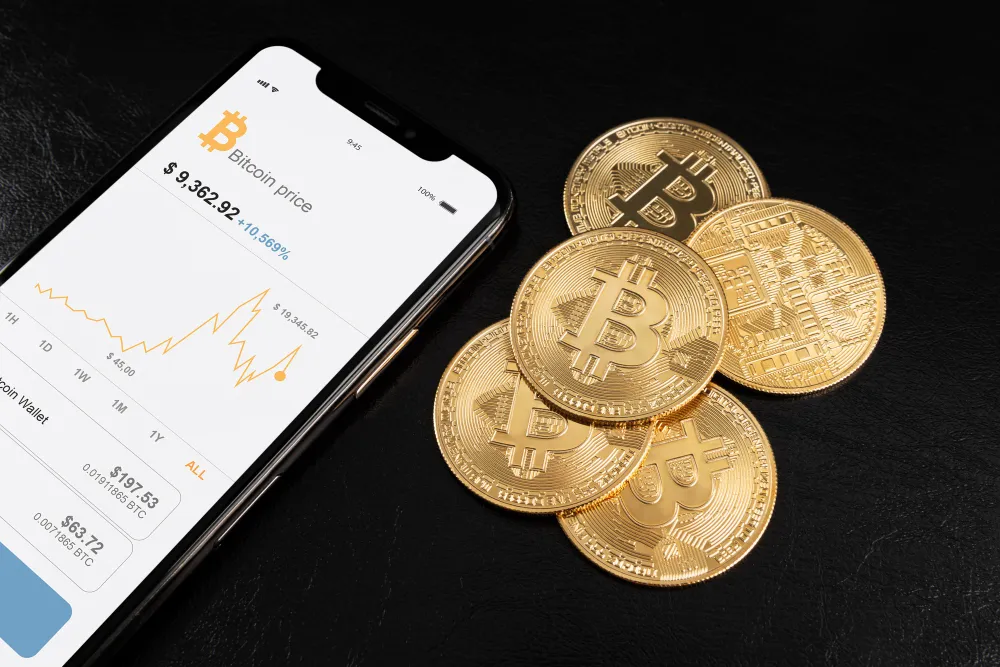Bitcoin and Gold: Competing Stores of Value?
Bitcoin is already known as the new gold — but is that really true? Can these two stores of value truly be compared?
Can Bitcoin Be Compared to Gold?
For centuries, gold has been considered humanity’s primary store of value. A scarce, physical, durable asset accepted worldwide as a symbol of wealth and security.

In an increasingly digital, decentralized, and volatile world, a common question in financial circles across the United States has become
Is Bitcoin becoming the new “digital gold”?
What Is a Store of Value?
In finance, a store of value is an asset that maintains its purchasing power over time.
In other words, it preserves value even during economic instability, inflation, or loss of confidence in fiat currencies like the dollar.
No matter what happens in the world, a store of value remains strong and steady—at least much more so than most national currencies.
Historically, gold has consistently fulfilled this role. Even during crises such as wars, recessions, or monetary collapses, the precious metal remained valued or, at least, stable.
Its value is globally recognized, and its scarcity—due to natural extraction limits—ensures a relatively predictable supply.
Bitcoin: The “Digital Gold” Proposition
Bitcoin emerged as an alternative to the traditional financial system, proposing a decentralized model based on blockchain technology.
Its creator, known by the pseudonym Satoshi Nakamoto, proposed a scarce digital currency with a fixed issuance limit: 21 million units.
This programmed scarcity—combined with decentralization and censorship resistance—led many analysts to compare Bitcoin to gold.
Both are difficult to “produce,” do not generate passive income (like dividends or interest), and, for many investors, their primary function is to preserve value in adverse scenarios.
In recent years, Bitcoin has begun to be viewed by some institutional investors in the United States as a form of hedge (protection) against inflation.
Similarities Between Gold and Bitcoin
Both gold and Bitcoin have limited supply. Gold’s scarcity is due to natural extraction barriers, while Bitcoin’s supply is controlled by an algorithm.
Both are decentralized by nature: gold does not depend on governments or financial institutions, and neither does Bitcoin.
Both are considered alternative assets outside the traditional financial system, especially sought during periods of instability.
While gold has always been highly liquid, Bitcoin is increasingly traded on exchanges, funds, and financial platforms in the U.S.
Fundamental Differences
Gold has thousands of years as a store of value. Bitcoin has just over a decade and exhibits much greater volatility.
In short periods, it can lose (or gain) 20% of its value in days.
Gold is a physical asset that can be stored in vaults. Bitcoin is entirely digital, requiring technical knowledge and cybersecurity.
Gold is widely regulated and accepted by central banks. Bitcoin still faces regulatory resistance and uncertainties, although this is changing in the U.S. with the approval of ETFs and increased SEC oversight.
Gold has industrial and jewelry uses and serves as a monetary reserve asset for nations. Bitcoin currently holds value mainly as a speculative asset or digital store of value.
What Do Investors in the U.S. Say?
In the United States, opinions are clearly divided. More conservative managers continue to prefer gold as a safe haven in times of crisis.
Traditional funds keep gold in their portfolios as a form of diversification and protection. On the other hand, younger, digital-native investors and some innovative fund managers have bet on Bitcoin as the store of value for the digital age.
The popularization of products like spot Bitcoin ETFs, recently authorized by the SEC, has helped make the asset more accessible and trustworthy for ordinary investors within the regulated American financial market.
What to Consider When Investing?
- Risk Profile: Bitcoin is more volatile and can suffer sharp declines. Gold tends to be more stable but has lower appreciation potential.
- Investment Horizon: Gold is more suitable for short- to medium-term protection. Bitcoin may offer higher long-term returns but with greater uncertainty.
- Diversification: Many experts recommend not choosing one over the other but rather combining both in appropriate proportions within a balanced portfolio.





